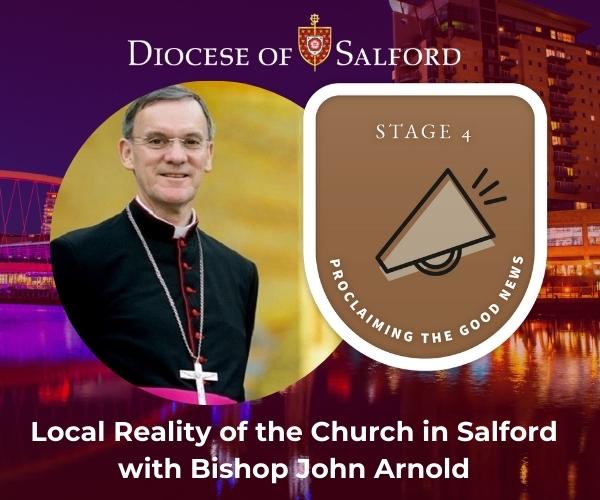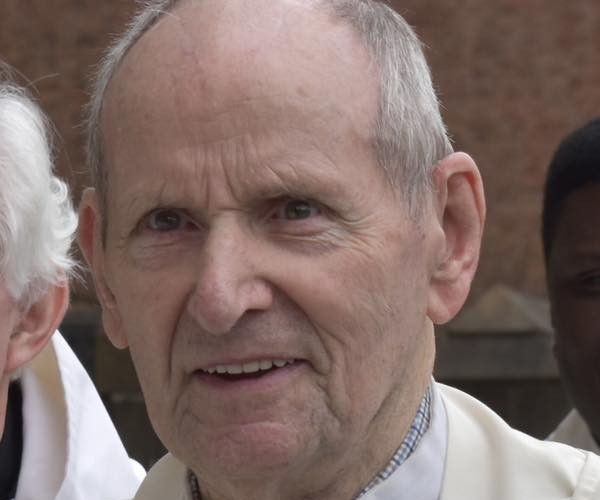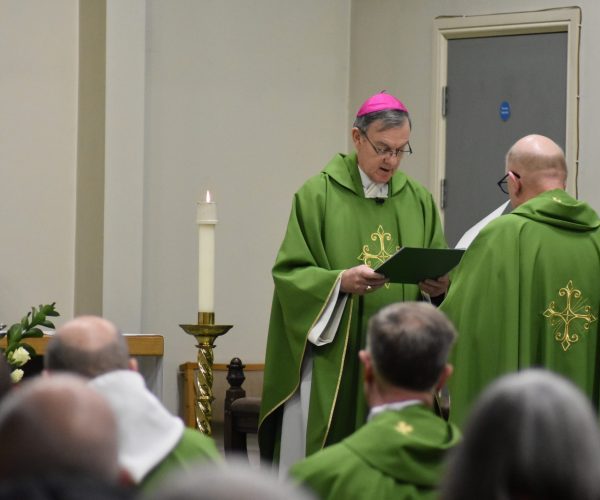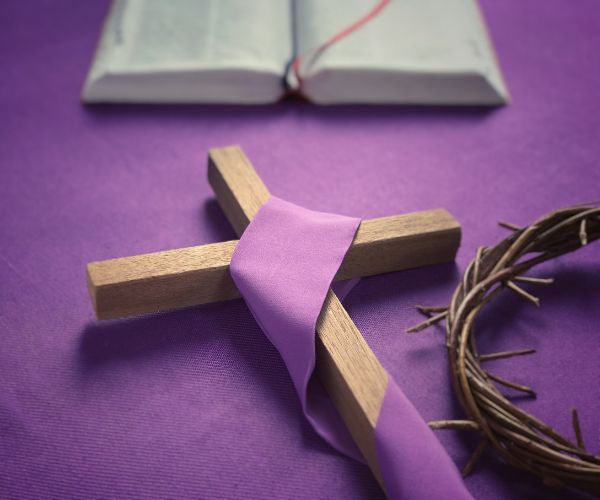
Local Reality of the Church in Salford with Bishop John Arnold
Friday 18th February 2022Bishop John began his talk last week with an anecdote about his time spent as a parish priest in North London. He compared his first weeks in that parish with the beginning of his time as Bishop here in the Diocese of Salford – he didn’t know the diocese, but his experience as a priest in Enfield had given him a powerful framework to better understand the parishioners and clergy that for whom he was now responsible. That framework was simple: listening.
A Changing Diocese in a Changing World
The Diocese of Salford has undergone significant changes in the past few decades, and during Bishop John’s time here. These changes have not been easy but are necessary in an increasingly secular and individualistic world. Despite this, there are many positives emerging from the good work of parishioners, teachers, clergy and more. Bishop John explained the importance of the presence and witness of the religious within the diocese, both those already present and those arriving from elsewhere. Our 208 “remarkable schools” were also praised. We should also be proud that so many across our diocese, both Catholics and children of other faiths or no faith, are imbued with Catholic values through their education. We were reminded also of the “wonderful influx of migrants from all over the world who are dedicated in their sense of faith”.
There certainly are “a lot of new challenges to face” as we go into the future, but our diocese is evolving, responding to events on a Global scale. Bishop John highlighted an increase in people who have joined us for livestreamed services throughout the pandemic, and the “wonderful” work done by priests and parishioners to reach out to one another and combat loneliness within our communities. But still, we find ourselves “at another moment of change.”
A Global Listening Church
How can the Diocese of Salford respond to global challenges? We can look back to Bishop John’s experience as a newly ordained priest; we can listen. Bishop John calls on Pope Francis’s “prophetic” perspective: “Pope Francis is in place just at the moment where we need to ask fundamentally important questions about the direction of our Church, what the gospel requires of our Church, what God is asking us to be and to do. And Pope Francis says: well, let’s have a synod”.
This global process will equip us with the ability to welcome in others, to bring those on the sidelines back into the Church and to live out our vocation as missionary disciples in this changing world.
“Let’s ask people what they really feel about the church, lets pray together in that common desire to know what the spirit is asking of us. Let’s be brave enough to invite everybody, and to invite not just those people who regularly turn up at Mass…Let’s ask the prisoners, the survivors of abuse, let’s make sure that everybody who has any opinion about the church to pray with us, to walk with us, and if they feel they want to speak up, to do so with confidence”
Faith in Action
One of the themes that was most evident in the audience’s questions at the end of the session was how we can put our faith into practice. Bishop John spoke of our becoming “missionary disciples” throughout the talk, and it was made clear that embracing the synodal process is a key way to put our faith into practice. The synodal process is deeply linked with our identity as “missionary disciples”; it is a method of communicating our faith to others and creating a welcoming environment in the Church. The Universal Synod is an opportunity to think about the Gospel values that we can “revisit, reinvestigate and reapply in our own day.”
This brought to mind a particular bible passage: Matthew Chapter 22, one of the bishop’s favourites. He gave us a summary: “A Pharisee comes up to Jesus and asks him “what is the most important commandment of the lord” and Jesus responds immediately – “the most important commandment: you will love the lord your God with all your heart, mind, and strength” and the second resembles it – ‘you will love your neighbour as yourself’.”
This passage shows precisely how we can put God’s word into action through listening to each other:
“This is exactly what Pope Francis is saying… we’ve got to go back to those most important commandments… we’ve got to be aware of the freedom above all to love God and to love our neighbour.”
The synodal process is central to our identity as missionary disciples in the Diocese of Salford – it will allow us to adapt to the global challenges faced by the Church in a kind, welcoming and prayerful way. Bishop John ended his talk with a message of hope: The Synod “will be very diverse, but I believe we can come to a common formula which will reflect those two commandments, love god and neighbour, in a practical and loving way which will respond to the global needs at this time in the history of humanity.”
You can participate in the synod individually here, or as a parish group here. There is one month left to submit your responses. The consultation closes on Tuesday 15 March.
Visit www.dioceseofsalford.org.uk/faith/synod for more information and resources.



